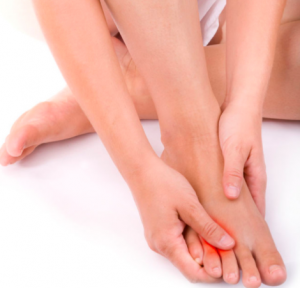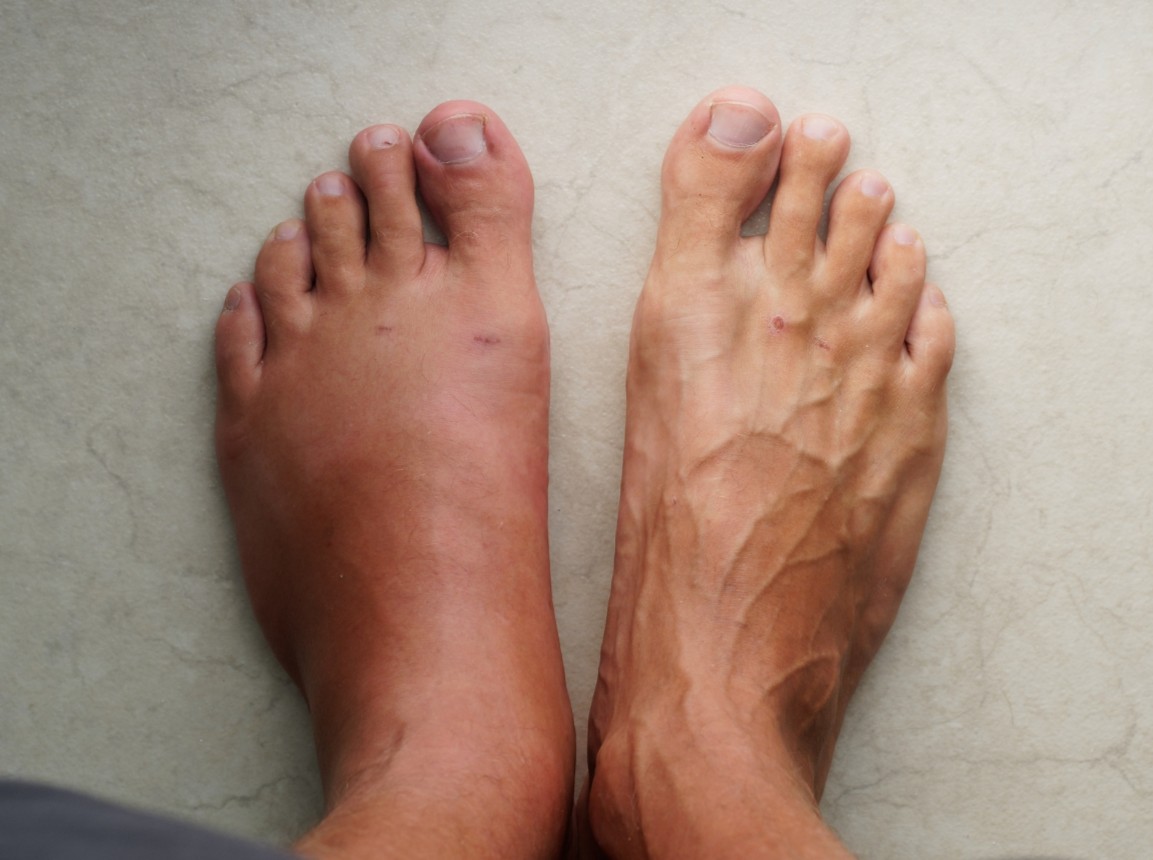Despite the name ‘neuroma’ which depicts a benign nerve tumour, a Morton’s neuroma describes the inflammation of the tissue around a nerve in the foot, causing it to thicken and become painful. It occurs between the long bones of the foot (metatarsals) and most commonly affects a nerve between the third and fourth toes around the ball of the foot.
 A
Morton’s neuroma is often caused by overloading the forefoot, with the sheath around the nerve thickening in response to pressure, injury or
irritation of the nerves. Contributing factors can include:
A
Morton’s neuroma is often caused by overloading the forefoot, with the sheath around the nerve thickening in response to pressure, injury or
irritation of the nerves. Contributing factors can include:
Symptoms of a Morton’s neuroma include:
Your treatment plan will depend on the severity of your symptoms and your regular activities. Treatment may include:

We’ve all had those days — you come home after hours on your feet, kick off your shoes, and notice your ankles look puffier than usual.
Swelling in the feet, ankles, or legs (known medically as edema) isn’t always a reason to panic. It can be as simple as a
salty lunch or a long flight.
But what if it’s happening more often — or seems to be getting worse? Swelling can sometimes be a sign of something more serious. Here’s
what could be going on and when to check in with your doctor.
.jpg)
Every year on October 8th, the world celebrates International Podiatry Day - a day dedicated to
raising awareness about foot health and the vital role that podiatrists play in our overall well-being.
Keeping your family on their feet and helping them to walk, run, play and exceed their goals is why we love getting up in the morning.
Ground Floor, One Health Building
122 Remuera Rd, Remuera
Auckland 1050, New Zealand
| MON - FRI | 7:30am – 6:30pm |
| SAT | 8:30am – 4:30pm |
| SUN | Some availability |
Make an Appointment
Online Schedule
Our virtual receptionist is available 24/7 to help with general questions, booking requests, and clinic information, even when our team is busy, or it's after hours.
Whether you're calling us or using our website, you'll get fast assistance any time of day. And if your query needs a personal touch, a member of our team will follow up as soon as possible.
If you’d like to see a podiatrist who speaks your preferred language, just give us a call and we’ll help you book.